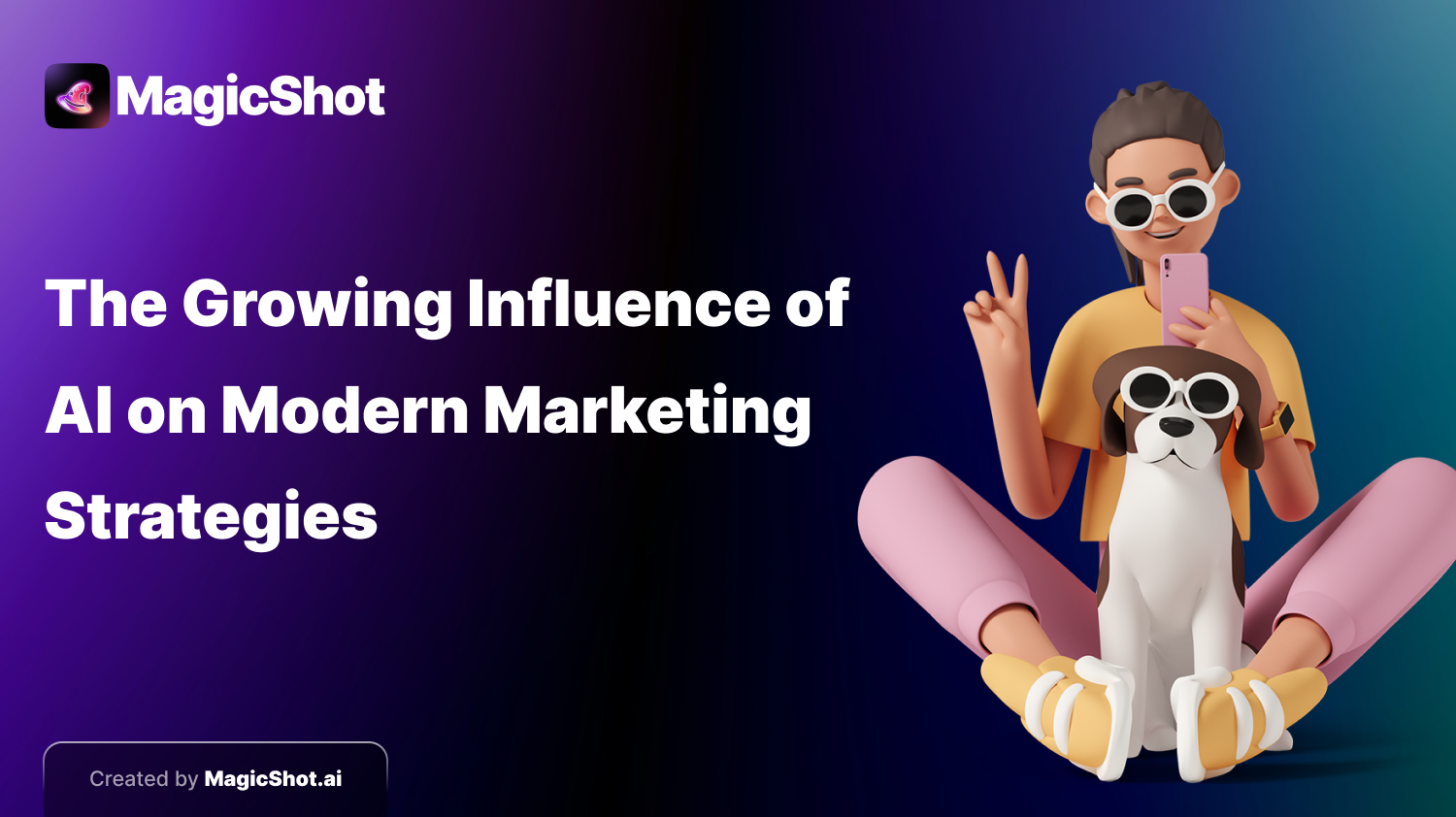The Growing Influence of AI on Modern Marketing Strategies
- AI
- 3 min read
- August 30, 2024
- Mayur Shinde
Artificial Intelligence (AI) has rapidly emerged as a transformative force in various industries, and marketing is no exception.
The ability of AI to process vast amounts of data, learn from patterns, and make intelligent decisions is revolutionizing the way businesses engage with their customers.
This blog post will explore the growing influence of AI on modern marketing strategies and delve into specific applications that are reshaping the industry.
Understanding AI in Marketing
At its core, AI refers to the development of computer systems that can perform tasks that typically require human intelligence, such as learning, reasoning, problem-solving, and perception. In the context of marketing, AI empowers businesses to:
- Analyze data: AI algorithms can process large datasets to identify trends, customer preferences, and market opportunities.
- Personalize experiences: AI-powered tools enable marketers to deliver highly personalized messages and recommendations to individual customers.
- Optimize campaigns: AI can help optimize marketing campaigns by analyzing performance metrics and making data-driven adjustments.
- Predict customer behavior: AI algorithms can forecast customer behavior, allowing businesses to anticipate their needs and proactively engage them.
Key Applications of AI in Marketing
- Chatbots and Virtual Assistants: AI-powered chatbots and virtual assistants are becoming increasingly sophisticated, capable of handling customer inquiries, providing support, and even completing transactions. These conversational agents enhance customer experience, improve efficiency, and gather valuable customer data.
- Content Generation and Curation: AI can assist in content creation by generating ideas, writing copy, and even creating visual assets. Additionally, AI algorithms can curate content based on customer preferences, ensuring that users see relevant and engaging material.
- Social Media Marketing: AI tools can help marketers manage social media campaigns, track performance, and identify influencers. By analyzing social media data, AI can provide insights into customer sentiment and optimize social media strategies.
- Email Marketing: AI can personalize email campaigns by tailoring content and subject lines based on individual preferences and behavior. AI-powered email marketing tools can also automate tasks such as segmentation and A/B testing, leading to improved results.
- Programmatic Advertising: AI algorithms are used in programmatic advertising to automate the buying and selling of digital ad space. AI analyzes real-time data to target ads to the most relevant audience, maximizing ROI.
- Predictive Analytics: AI can be used to predict customer behavior, such as churn rate, purchase likelihood, and product preferences. This information allows businesses to take proactive steps to retain customers and improve sales.
The Benefits of AI in Marketing
- Improved Customer Experience: AI enables personalized experiences, leading to increased customer satisfaction and loyalty.
- Enhanced Efficiency: AI automates repetitive tasks, freeing up marketers to focus on strategic initiatives.
- Data-Driven Decision Making: AI provides valuable insights based on data analysis, allowing for more informed decision-making.
- Increased ROI: By optimizing campaigns and targeting the right audience, AI can help businesses achieve a higher return on investment.
- Competitive Advantage: Businesses that leverage AI effectively can gain a significant competitive advantage in the marketplace.
Challenges and Considerations
While AI offers numerous benefits, it is not without its challenges:
- Data Quality: AI relies on high-quality data to function effectively. Incomplete or inaccurate data can lead to flawed insights and decisions.
- Ethical Considerations: The use of AI raises ethical concerns, such as privacy and bias. Businesses must ensure that AI is used responsibly and ethically.
- Technical Expertise: Implementing and managing AI solutions requires technical expertise. Businesses may need to invest in training or hire specialized talent.
The Future of AI in Marketing
As AI technology continues to evolve, its influence on marketing strategies will only grow stronger. We can expect to see even more innovative applications, such as voice-activated marketing and AI-generated personalized content.
Businesses that embrace AI and invest in developing their AI capabilities will be well-positioned to thrive in the digital age.
Conclusion
AI has the potential to transform the way businesses market their products and services. By understanding the key applications of AI and addressing the challenges involved, marketers can leverage AI to enhance customer experiences, improve efficiency, and drive business growth. As AI technology continues to advance, it will be essential for businesses to stay informed and adapt their strategies accordingly.


